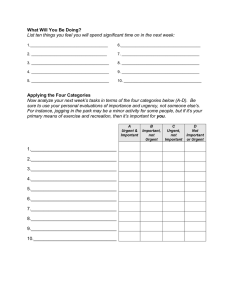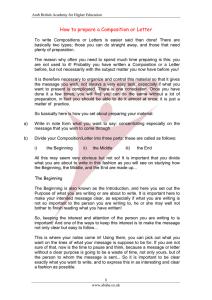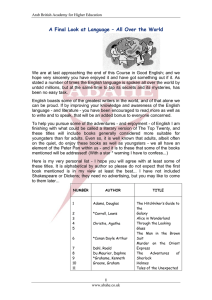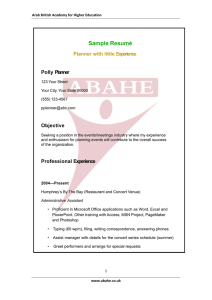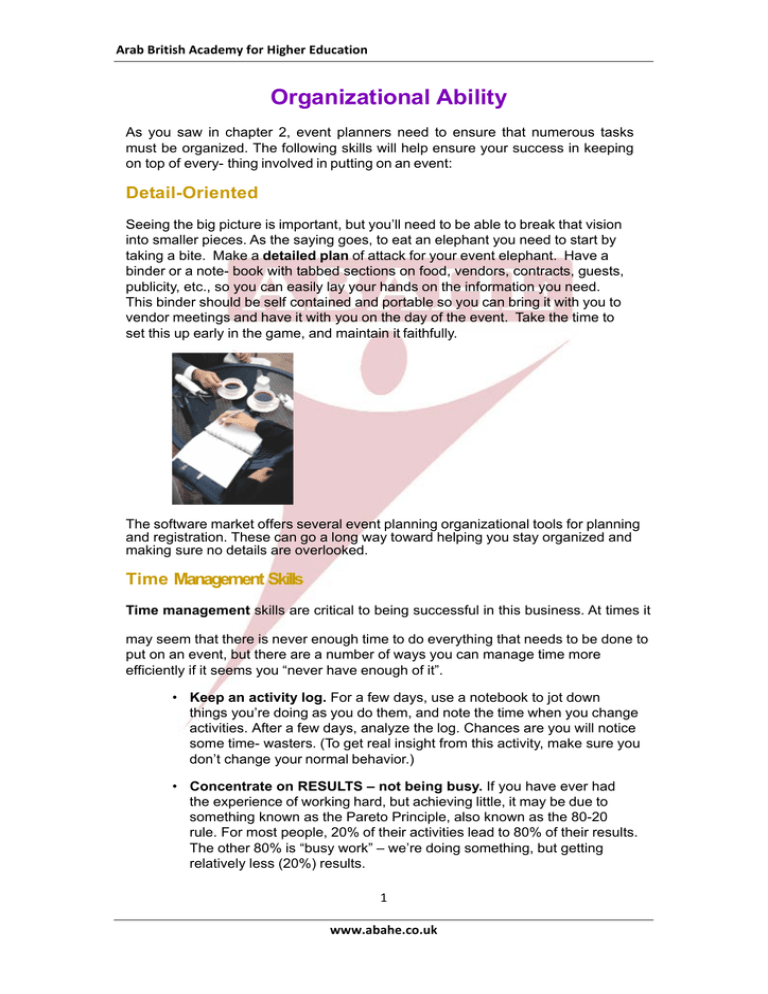
Arab British Academy for Higher Education Organizational Ability
As you saw in chapter 2, event planners need to ensure that numerous tasks
must be organized. The following skills will help ensure your success in keeping
on top of every- thing involved in putting on an event:
Detail-Oriented
Seeing the big picture is important, but you’ll need to be able to break that vision
into smaller pieces. As the saying goes, to eat an elephant you need to start by
taking a bite. Make a detailed plan of attack for your event elephant. Have a
binder or a note- book with tabbed sections on food, vendors, contracts, guests,
publicity, etc., so you can easily lay your hands on the information you need.
This binder should be self contained and portable so you can bring it with you to
vendor meetings and have it with you on the day of the event. Take the time to
set this up early in the game, and maintain it faithfully.
The software market offers several event planning organizational tools for planning
and registration. These can go a long way toward helping you stay organized and
making sure no details are overlooked.
Time Management Skills
Time management skills are critical to being successful in this business. At times it
may seem that there is never enough time to do everything that needs to be done to
put on an event, but there are a number of ways you can manage time more
efficiently if it seems you “never have enough of it”.
• Keep an activity log. For a few days, use a notebook to jot down
things you’re doing as you do them, and note the time when you change
activities. After a few days, analyze the log. Chances are you will notice
some time- wasters. (To get real insight from this activity, make sure you
don’t change your normal behavior.)
• Concentrate on RESULTS – not being busy. If you have ever had
the experience of working hard, but achieving little, it may be due to
something known as the Pareto Principle, also known as the 80-20
rule. For most people, 20% of their activities lead to 80% of their results.
The other 80% is “busy work” – we’re doing something, but getting
relatively less (20%) results.
1 www.abahe.co.uk Arab British Academy for Higher Education • Do what’s important. There are four categories of tasks based on
urgency and importance:
• urgent and important
• non-urgent and important
• urgent and non-important
• non-important and non-urgent
While it would be logical to focus first on tasks that are both urgent and
important, many people spend a lot of time on tasks that are not
important, either because those tasks are urgent or because they are
easy. Completing a lot of easy tasks, even if they are not important, can
give people a sense of accomplishment. Of course, putting off the more
difficult tasks that are important but non-urgent, eventually leads to them
becoming urgent!
• Set daily goals to help you keep on track.
• Divide your tasks into lists based on priorities. Your A List should
be things that must get done today. Your B List is items to do only if
everything
on the A list gets done (e.g. errands that could be done tomorrow or
following day). Your C List is everything else which should be done only
after everything on your A and B lists has been done.
All Rights Reserved © Arab British Academy for Higher Education 2 www.abahe.co.uk

